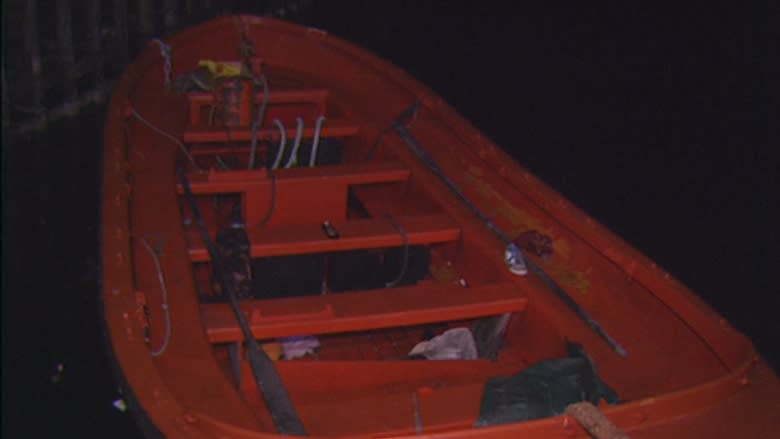Tamil 'boat people' returning to St. Mary's Bay 30 years after rescue by local skipper
Thursday, Aug. 11, 2016 marks a fascinating anniversary for Newfoundland and Labrador.
On that date 30 years ago, two boatloads of Tamil refugees were found drifting off the Avalon Peninsula.
This August, five of the refugees who arrived on the lifeboats will travel back to Newfoundland — for the first time since then — to reunite with Gus Dalton, their rescuer.
They will be accompanied by documentary maker Cyrus Sundar Singh who plans to "capture the moment."
Singh will chronicle the anniversary as part of a film he is making about the strange sight skipper Dalton came across in St. Mary's Bay three decades ago.
"It turned out to be 155 Tamil/Sri Lankan refugees who had sought freedom on a cargo ship which had then unceremoniously dumped them about 200 miles off the coast of Newfoundland," said Sundar Singh.
"These people were told they would be in Montreal in four hours."
"At that time they were adrift for three days without food and water. They were starving. They were dehydrated."
After three days of drifting aimlessly on the North Atlantic, the refugees were spotted through the fog by Dalton and his fishing crew, who arranged a rescue effort.
"So he called in a whole bunch of his contemporaries and so I think it was four fishermen all together and their people who helped bring all these people, rescued them and brought them to shore," Sundar Singh told Weekend Arts Magazine (WAM).
At the time, the rescue made international headlines.
Once on land, Sundar Singh said the refugees were welcomed, fed and given medical care in fine Newfoundland fashion.
"They feed you first and then they take care of you and (they) ask questions later."
The reception the Tamils got wasn't as warm from everyone, though.
Some people weren't too happy to suddenly have these "boat people" show up on Canada's shores.
Moving to mainland
There was a backlash inside the governing Conservative party at the time, as well as among some Tamils already in Canada who thought the new refugees were jumping the line.
Sundar Singh said it was the prime minister at the time who ultimately quelled the unrest.
"Brian Mulroney, to his credit, actually came out and stood up and fought for them and said, '155 refugees who show up on our shores aren't going to change the face of Canada,' and that we shouldn't be worried and we should accept them."
After staying for only a few days at Memorial University while they were processed, the Tamils were given special dispensation allowing them to stay and work in Canada.
They then travelled to Montreal and Toronto to begin their new lives.
Today, most of the refugees are living in Toronto. Sundar Singh said there was already a Tamil enclave established in the Cabbagetown area of the city in those days and over the years many of the refugees that arrived on those two lifeboats have gravitated there.
"So most of the 155 people stayed, they became citizens, they became part of our fabric. I would say a third have done extremely well, a third has done quite well and the other third are, you know, maybe, struggling with what they had faced and continue to face."
Sundar Singh lives in the same neighbourhood in Toronto. Over the years, he became familiar with their story. Then the Gemini award-winning director, producer and composer decided to document the 30th anniversary of their arrival in Canada.
Giving back
One of the Tamils who will travel to Newfoundland on Aug. 11 would like to make a special presentation while he's here.
After the refugees were processed in St. John's and were moving on to their new homes on the mainland, they were given cheques by the government to allow them to buy some things to start their new lives.
However, one Tamil man got work shortly after arriving in Montreal.
"So he didn't need his cheque. So he actually has this uncashed cheque that he still has with him. He has never cashed that cheque," said Sundar Singh.
He is now trying to arrange some sort of reverse cheque presentation, to allow the man to return the cheque to the Government of Canada when he's back in Newfoundland.





